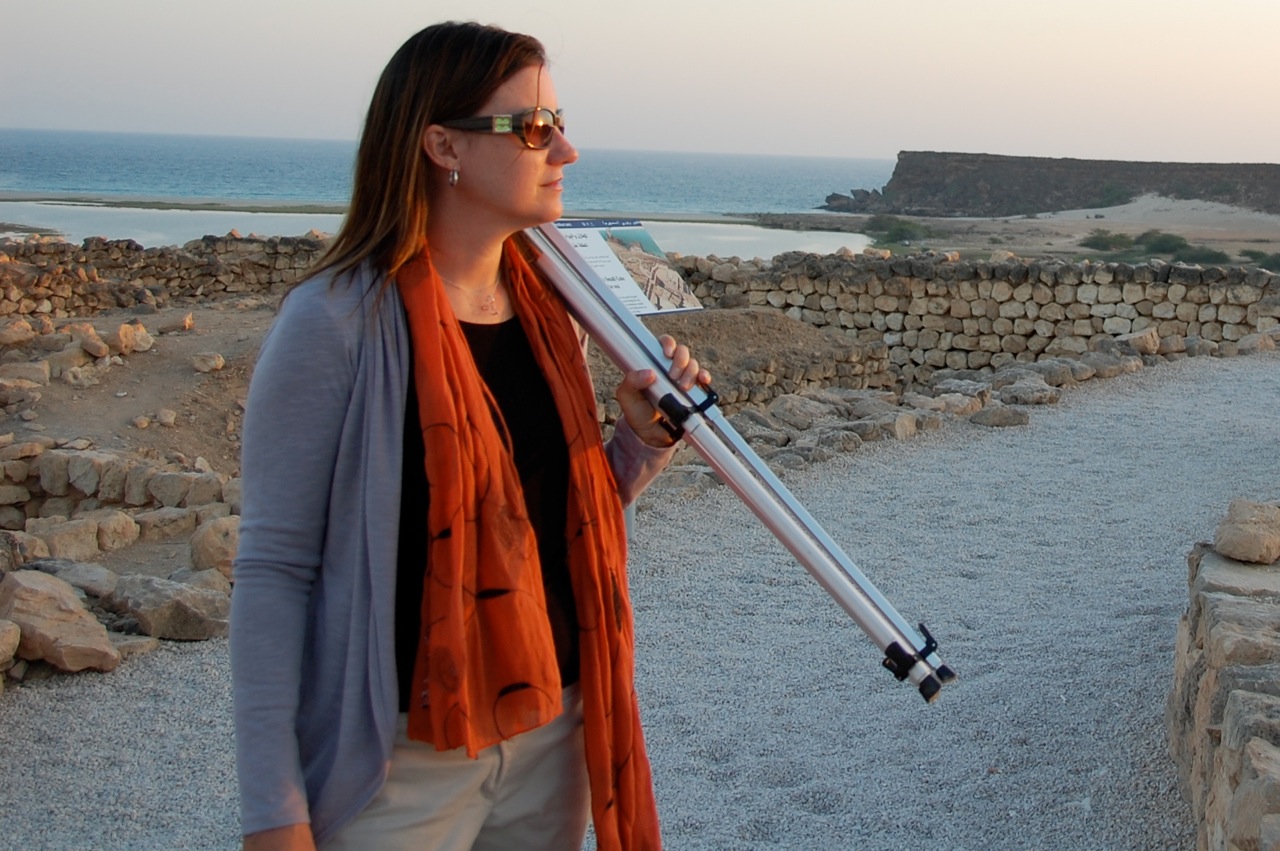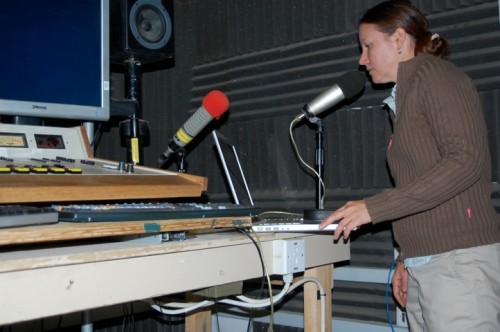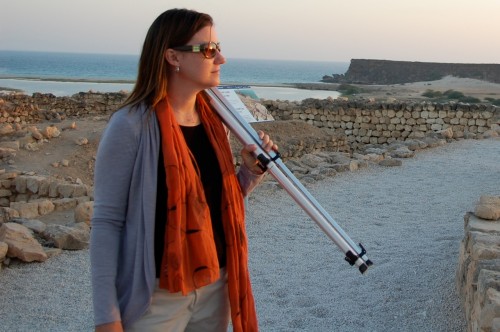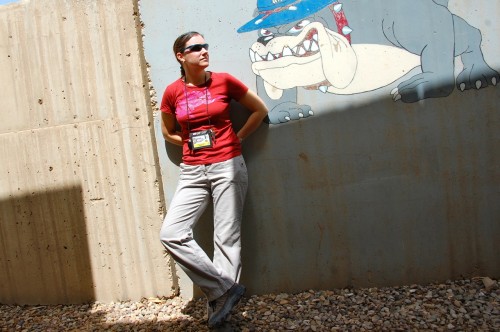
Faculty Spotlight: Jackie Spinner
Most children get the question, “What do you want to be when you grow up?”
But how many actually answer it correctly?
For Jackie Spinner, assistant professor of journalism at Columbia College Chicago and working journalist, she was one of the few who did.
“I wrote my first newspaper story for my hometown newspaper when I was 13,” Spinner said. “I’ve always wanted to be a journalist. There is nothing else I ever considered.”
That would be the first of many articles to come in Spinner’s career.
Following her summer internship with the Washington Post, Spinner was hired on as a staff writer. During her 14 years with the Post, she covered the wars in Iraq and Afghanistan, was Baghdad bureau chief and won the Distinguished International Reporting Award from the Washington-Baltimore Newspaper Guild.
In the summer of 2005, Spinner followed her first long assignment in Iraq by writing a book, Tell Them I Didn’t Cry: A young journalist’s story of joy, loss and survival in Iraq (Scribner 2006). Upon completing it that summer, she returned to cover Saddam Hussein’s trial.
Spinner left the Post in 2009 and founded three international publications. The first was Angel Says: Read, which is an international literacy project based in Belize, Central America. In 2010, she started AUI-S Voice, which is not only The American University of Iraq’s first independent student newspaper, but also an award-winning publication. From 2010 to 2011, Spinner founded another first-time independent student newspaper – Al Mir’ah. This was when she was a U.S. Fulbright Scholar in Oman and taught at Sultan Qaboos University.
Spinner has not only continued her teaching career at Columbia, but has continued to be a working journalist—something she said is “the greatest advantage” to Columbia’s journalism program.
“I am only as relevant to my students as my last piece of journalism,” Spinner said. “I find it enormously valuable to bring my reporting experiences into the classroom. It makes it real for journalism students.”
Spinner writes, shoots photos and produces audio slideshows and video for the Web. She has also contributed to Christian Science Monitor, Foreign Policy, Chicago Tribune, Slate, Glamour, Aswat al-Iraq, American Journalism Review, Defense Quarterly Standard and U.S. Catholic News. In addition, she is co-director of Conflict Zone: A groundbreaking photojournalism exhibit from the front lines of Iraq and Afghanistan.
It’s those experiences—and those of her colleagues—that help prepare students for their careers after graduation.
“We can anticipate changes in the industry because we are still in the industry,” Spinner said. “We know what’s happening in newsrooms because we are still in newsrooms. We are mostly journalists who teach, and that is hugely beneficial to our students.”
Spinner not only shares her experiences, but also advice she received as a graduate student.
“Susan Rasky, a professor of mine at Berkeley who recently died, gave me the best advice when I was getting ready to graduate,” Spinner said. “She said to pick one thing and be great at it or I’d end up just being good at a lot of things.”
Although Rasky’s advice is somewhat controversial to the industry’s growth towards multimedia journalists, Spinner said she still thinks it remains true.
“Students do need to be versatile and willing to learn or teach themselves new tools,” Spinner said. “You can’t graduate from journalism school today only knowing how to do one thing. But it’s still solid advice to encourage students to find one thing that they do best and hone that skill.”

Recording voiceover for multimedia piece, Baghdad, Iraq, December 2010. Photo Credit: Jackie Spinner
Spinner said she teaches and encourages multimedia journalism in her classes, but it’s not at the cost of key journalism values.
“I use multimedia platforms to teach traditional journalism values,” Spinner said. “I don’t value gadgets or digital technology over all of the other things we teach. We have these incredible new ways to tell our stories, but we still have to tell good stories and we have to tell them professionally, ethically and accurately.”
As for the future of journalism, Spinner said that is the exciting part for current and future journalists today because she said she doesn’t know where the industry will go.
She added that the business side of journalism does need some fixing—people want their news and information for free, but it costs money to give it to them. Although outlets have been created to do this, it has come at a cost to the quality and accuracy of the content.
“People have so many choices to get information. Much of it is not news or accurate,” Spinner said. “We have to continue to value the traditional values that make good journalism good journalism. That means teaching media literacy to consumers of news, helping people understand how we get our information and the importance of ethics, accuracy and credibility.”
Her advice for future journalists in this ever-changing industry is to “be flexible,” “be willing to teach yourself new tools” and have a passion for it.
“I love being a journalist. I can’t imagine doing anything else,” Spinner said. “If you love it, you will not settle for anything less than being a great journalist.”


